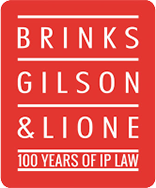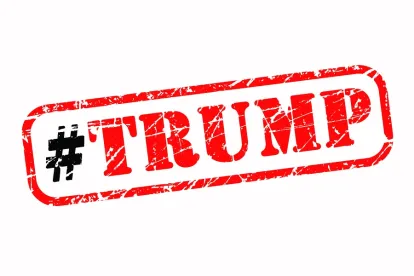The Trademark Trial and Appeal Board (“TTAB”) recently issued a precedential decision about the use of hashtag trademarks in In re: DePorter, Serial No. 87/229,711 (TTAB Jan. 29, 2019). Many companies use hashtags in their marketing, and this decision highlights practical considerations about protecting and seeking registration for such trademarks.
In this case, the applicant sought to register #MAGICNUMBER108 for various apparel items in Class 25. Chicago Cubs fans used the #MAGICNUMBER108 hashtag frequently in social media posts during and after the Cubs’ successful 2016 World Series campaign – the club’s first World Series title in 108 years. The Examining Attorney and the TTAB refused registration on the ground that #MAGICNUMBER108 is mere informational matter that fails to function as a trademark to indicate the source of the applicant’s goods and identify them from the goods of others. The TTAB emphasized that “[t]o be a mark, the phrase must be used in a manner which indicates to purchasers or potential purchasers a single source or origin for the goods.” In re: DePorter, p. 3. As support, the TTAB acknowledged that the evidence provided by the Examining Attorney showed wide use of #MAGICNUMBER108 in a non-trademark manner to convey information about the Chicago Cubs’ World Series appearance and win after a 108-year drought. The TTAB found that this evidence suggested that “upon encountering Applicant’s ‘mark,’ prospective purchasers familiar with such widespread non-trademark use are unlikely to consider it to indicate the source of Applicant’s goods.” In re: DePorter, p. 11. The TTAB also noted that the presence of the hash mark in the trademark #MAGICNUMBER108 was a relevant factor because the dictionary definition of a hashtag “is a word or phrase preceded by a hash mark (#), used within a message to identify a keyword or topic of interest and facilitate a search for it.” In re: DePorter, pp. 11-12. The TTAB emphasized that its conclusion that #MAGICNUMBER108 would be perceived as a hashtag was tied to the particular evidence of this case and that each case must be decided on its own facts: “That is not to say that every combination of a hash mark and word or phrase is or will be a hashtag.” In re: DePorter, p. 12.
Important Notes:
-
The more commonly a term or expression is used by the public, the less likely the expression will be identified with a single source.
-
In this case, the TTAB found that numerous third-parties used #MAGICNUMBER108 as the subject matter of Tweets and Instagram posts related to the Chicago Cubs World Series win in 2016, rather than to any goods or services provided by the applicant.
-
The TTAB stated that where a hashtag is used as part of an online social media search term, it generally serves no source-indicating function, because it “merely facilitate[s] categorization and searching within online social media.” TMEP § 1202.18. In re: DePorter, p.
-
-
Mere intent that a hashtag function as a trademark, or the mere fact that such trademark appears on the applied-for goods is not enough in and of itself to make it a trademark. Rather, a hashtag trademark must be used in a manner which indicates to purchasers or potential purchasers a single source or origin for the applied-for goods.
-
In this case, the TTAB found that it was not enough that the applicant used the #MAGICNUMBER108 on t-shirts because the applicant failed to identify or produce copies of any methods used to create product awareness.
-
Moreover, the TTAB noted that to the extent the applicant provided examples of where goods were shown in connection with #MAGICNUMBER108, they were not the type of goods that were covered in the trademark application.
-
-
The TTAB used the Mucinex example to provide a contrasting instance where a hashtag trademark might be registrable:
-
[T]he makers of Mucinex have registered #blamemucus, which allows potential consumers to commiserate about their colds through social media, as well as spread the word about Mucinex and participate in drawings for prizes. The #blamemucus registration covers both the pharmaceutical products themselves (with a store display bearing the mark as a specimen of use) and services consisting of information in the field of respiratory and pulmonary conditions via the Internet (with the company website as a specimen).
In re: DePorter, p. 14.
-
Key Takeaways:
-
Like with other trademarks, to seek protection for a hashtag trademark in connection with goods and/or services, you should:
-
Choose a distinct word or phrase that relates to the applied-for goods and services;
-
Plan to use the hashtag trademark on point of sale signs, packaging, displays, advertisements, brochures and/or websites in a prominent manner to promote the applied-for goods and/or services.
-
-
If you decide to use the hashtag trademark in a social media campaign, use it to encourage consumers to use the hashtag trademark to create awareness for the applied-for goods and/or services.
-
The addition of the term “hashtag” or the hash symbol (#) to an otherwise unregistrable term typically will not render the resulting composite term registrable. For example, if a trademark consists of the term HASHTAG or the hashtag symbol followed by wording that is merely descriptive or generic for the goods or services, the entire trademark must be refused as merely descriptive or generic (i.e. #SKATER for skateboarding equipment is merely descriptive).
-
Given that the purpose of a hashtag is for it to be used by as many consumers as possible to develop online conversations, hashtag trademarks may present challenges in enforcing and policing third-party uses of such trademarks. As a result, if you intend to leverage the reach of a hashtag trademark by seeking registration with the USPTO, you should consider the impact that these online conversations may have on the registrability of the hashtag.





 />i
/>i

